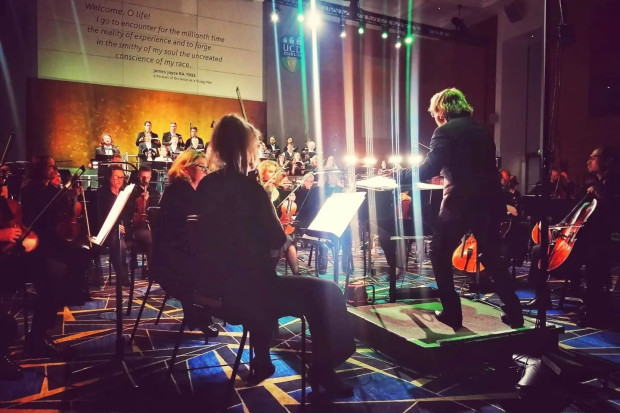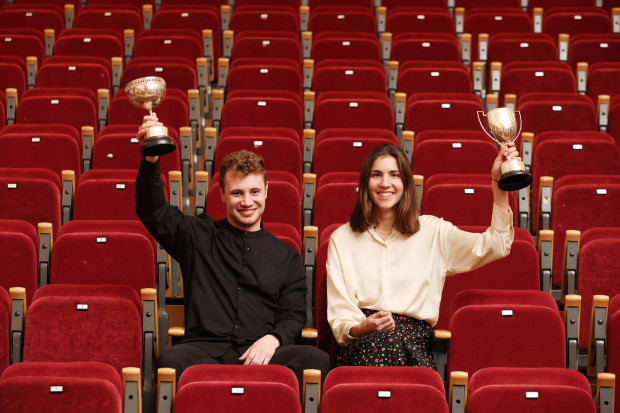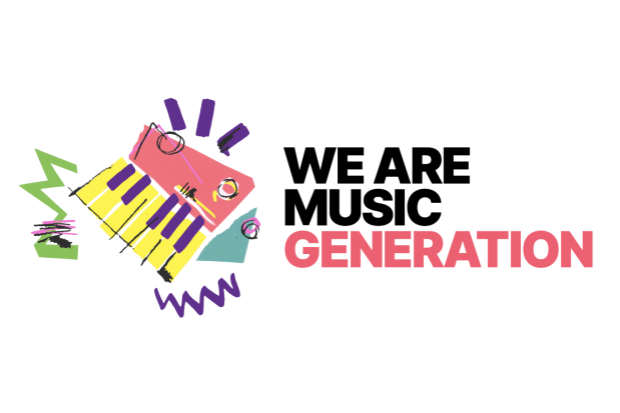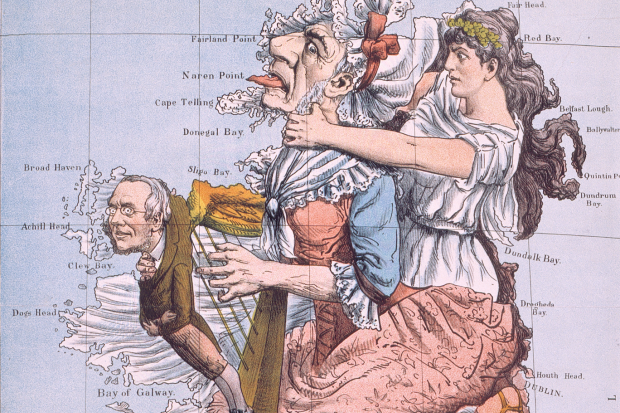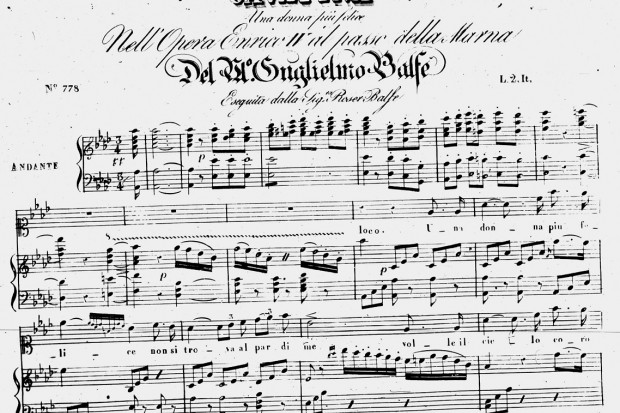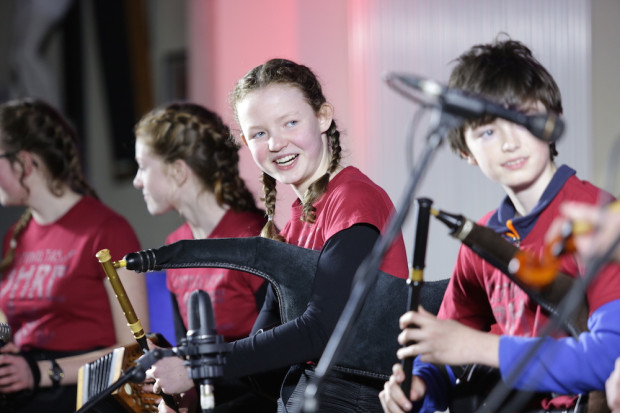Letters: Music Education: Where do we go from here?
Richard Pine, Dublin, writes:
I wish I shared Ita Beausang’s optimism. I wish rain was beer. But I don’t and it isn’t. In her article on music education she asks ‘Where do we go from here?’ My answer is ‘Nowhere, absolutely nowhere’. I do not intend to denigrate in any way the fantastic work that has been done in setting up the Irish Association of Music Schools or the Forum for Music in Ireland or the Music Education Action Group. These organisations have been founded by individuals or nuclei of activists with the best and most laudable intentions. But the fact that there are so many of them, and that they have in fact achieved nothing whatsoever as far as influencing government policy is concerned, simply fills me with complete pessimism for the future.
The fact we have to accept is that classical music has no political currency of any kind in Ireland. It is a marginal activity, and even when someone as politically powerful as Erskine Childers was the minister responsible for the national symphony orchestra, he was almost unable to get Cabinet approval for its development. The prevailing view was that of one of his predecessors, James Everett, who told the Dáil that this kind of music was only for ‘a few old fogeys in Rathmines’.
The most distressing point of all is that we rely on isolated individuals, on their vision, their energy, their commitment, their powers of persuasion, to winkle permissions, premises and, occasionally, money from those in authority for meagre developments which are almost always of a piecemeal nature. It is all very well to laud individuals such as Anne Woodworth or Philip Edmondson (and I do laud them), but there should be a county committee in every county looking for such leadership and rewarding it with facilities – i.e. not merely responding to individual initiatives but taking the initiative themselves. It shouldn’t be the case that if you live in Waterford, or Kilkenny or Sligo you have a chance of an intelligent music education being available, while if you live in Galway or Tipperary or Westmeath you don’t (and please don’t write in to tell us that there are good music schools in these places, I hope there are).
Ita Beausang asks ‘Since IAMS was founded what has happened in Ireland to gladden the hearts of music educators?’ Her answer is: the six sessions of the Forum for Music and three reports on music education. One of these was the ‘Music Education National Debate’: I have ploughed through the hundreds of turgid pages of this report, unable to see a single gleam of even half-light that would make sense, let alone be adopted, by anyone in authority. Another is the Music Network proposal for peripatetic locally based teaching which is so obvious in its findings and suggestions that it will never be adopted – its aspirations will remain precisely that.
Ita Beausang quotes the chairman of that report, Martin Drury, as saying that in Ireland ‘we allow for things to happen but do not provide for them to happen’ (I’ve quoted this myself, to no avail). What that means is that there is no possibility of a policy for music education or of a strategy for implementing the policy, or of an infrastructure being provided to make it all happen, while the mandarins in the Department of Education are allowed to live unmolested in Marlborough Street. Even if the present Minister were to ask for a feasibility study and a resultant policy, there would be a million reasons why it couldn’t be done. Yes, Minister.
I’ve heard it said that if one influential, respected figure from the world of classical music could catch the ear of the Minister, something could be done. But the fortunes of music education in Ireland will never be able to depend on such individuals, and there is in fact no person in a position of power or authority in Irish music who could achieve such a thing. Most of those in such positions work to personal agendas and most music teachers are more concerned with winning prizes at the Feis Ceoil than in the musical well-being of the nation as a whole or even of the musical personalities of their students.
Ita Beausang gives the game away when she says ‘this situation will not change until attitudes to music education in Ireland change, starting with the policy-makers’. That is true, but there is a flaw: there are no attitudes to music education and in fact there are no policy-makers in this area. It is not a question of ‘music schools getting the ear of politicians’ as Ita Beausang suggests, because what is needed is a system which successive governments since 1922 have failed to even consider. When one realises that the music education lobby is in competition with those who have the inside track in favour of science and technology, one comes to the conclusion that it would be better to just stay in bed.
I regret having written this so intemperately, but I cannot see any way forward. A small number of dedicated selfless teachers will continue to do everything they can to help the children of parents who in many cases have crippling financial burdens because they believe in their children’s musicality and they struggle on in circumstances which are the fault of the state because it does not cherish all of the children equally. The child moves from primary to secondary to third-level, and when s/he gains international recognition, s/he suddenly becomes an object of national pride and some minister applauds our new ‘musical ambassador’, without the country having done anything more than the meagre minimum for that child over the past 20 years. There is no connection between these levels, no overall vision, no policy, no idea of what we want to achieve by putting a system in place.
I defy Ms Mary Hanafin and Ms Brigid McManus, or anyone else, to prove me wrong. I beg them to do so. (Well, I don’t, actually, because begging is out of fashion, so I’m told.) But the key question to them is the same: are you prepared to provide for things to happen, not just to allow for them to happen? Will either of them even read Ita Beausang’s article or my reply? If they have, they will assuredly be waiting complacently for the music lobby to come to them with its case, which is what Ita Beausang suggests (‘The Minister today received a deputation from the music education lobby; the Minister said that she deeply appreciated the arguments that had been put to her, and respected the important contribution that music makes to Irish life; she would ask officials in her department to investigate ways in which the deputation’s suggestions could be put into effect’). This would be much easier than taking any kind of initiative. Since the project of setting up a policy-driven system would take them far beyond the life of this Dáil and the next, it is beyond belief that it would even be considered, and entirely predictable that a change of incumbent in Marlborough Street would in any case call a halt to any such initiative. Yes, Minister.
Published on 1 November 2005
Richard Pine, Director of the Durrell School of Corfu, is a former Concerts Manager in RTÉ. He is the author and editor of books on Irish music history and of definitive studies of Oscar Wilde, Brian Friel and Lawrence Durrell.










